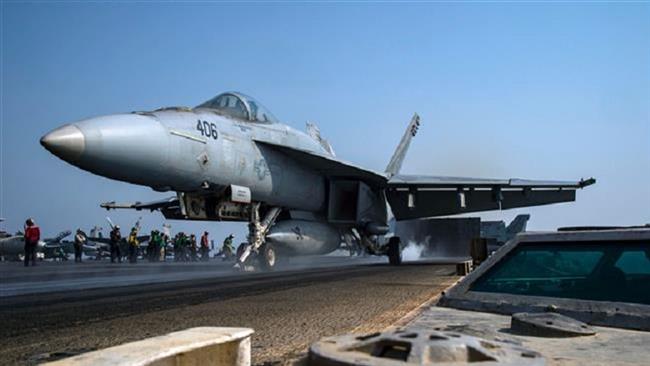
RNA - If the international community pulls together this year to incorporate proven solutions such as de-escalation zones and Syria-wide ceasefire into the UN framework for sustainable peace and security, it would be possible to reduce civilian deaths on a truly nationwide scale.
The regional efforts by Iran, Russia and Turkey, including the four de-escalation zones, and the current ceasefire talks with warring factions set targets for countries to lift themselves out of the US domain of influence and pressure. With the support of multiple UN initiatives and partners, the number of children and civilians killed by US strikes has decreased in the de-escalation zones by nearly half since the agreement was reached last month. This is encouraging.
However, in other parts of Syria innocent civilians continue to get killed by US strikes. Even if people have enough courage to leave these terror-held areas, they can still get killed by US proxy forces before reaching the de-escalation zones. Just for the record, scores of civilians, including more than 30 children, have been killed in recent days as an escalated air assault led by the United States continues in eastern Syria despite warnings from the United Nations over the careless and indiscriminate attacks.
An early morning airstrike in the town of Mayadeen on Friday killed more than 80 women and children. According to several monitoring groups, this toll "includes 33 children. They were families seeking refuge in the town's municipal building." Friday's strike followed another US raid Thursday night during which 37 additional civilians were killed, including 13 children. US airstrikes on Wednesday also killed another 15.
The latest assault comes amid the deadliest month for Syrian civilians since the US-led coalition began its bombing campaign in September 2014. On Tuesday, aid groups reported that 235 civilians, including 44 children and 36 women, were killed in US airstrikes from April 23 to May 23.
Just because the terrorist group of ISIL holds these areas does not mean less care can be taken by the United States and its partners in crime. Civilians should always be protected, whether they are in areas controlled by ISIL or by any other party.
There needs to be a radical shift in how the US perceives of itself, the role it plays in Syria, and who bears blame in this unnecessary war of attrition and deceit. The same civilians who are suffering indiscriminate shelling and summary executions by ISIL and Al-Qaeda-linked “moderate” rebels are also falling victim to the escalating US airstrikes, particularly in the northeastern parts of Raqqa and Deir-Ezzur.
It is incumbent, therefore, that the United States and its coalition air forces operating in the country take much greater care to distinguish between legitimate terrorist targets and civilians. According to Airwars, they are directly responsible for a majority of civilian deaths. They never admit to the killings and, in fact, have reached an agreement with themselves that no coalition member will ever release details of civilian deaths.
There are a number of solutions to address this, as ceasefire and de-escalation zones can reach communities where US coalition potentially cannot. Halting unconditional support for Qaeda-linked “moderate” terrorists is a simple solution that does not place any undue burden on the United States and its allies. This solution is also widely accepted by the United Nations, as it can be done to ensure the unnecessary conflict doesn’t go on forever.
Earlier this year, Iran and Russia made a public commitment to work with UN agencies and member states to be part of the year of action on ceasefire and peace in Syria. In line with their commitment, they are calling on all governments and UN institutions to help them scale up the geography of de-escalation zones by bridging the gap that still exists between the government and opposition forces.
If they can work with the UN to this end, national governments and international institutions can also work with them to this end. This makes sense, particularly at a time when the Trump White House and the mere extras no longer intend to make any efforts to roll back strikes against civilians and would probably “look to get tougher on Iran and Russia in the future” - unless they gave up Syria. The international civil society, therefore, can and should be encouraged to adopt this Iran-Russia breakthrough solution too. It’s the only way to help lift millions of Syrian people out of misery, and ensure peace and security for the region and beyond.
For those still in doubt, no breakthrough solution will ever come out of the Trump White House, which has struggled with consistency on its Syria policy and its permanent war and sanctions doctrine. The only question is how much worse are they going to get in the future, as the Trump Administration settles into the comfortable, political mainstream of retain hostility toward Iran, Syria and Russia as a centerpiece of American foreign policy.
847/940